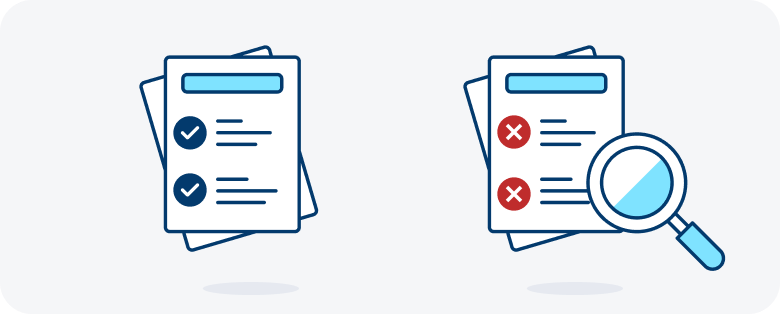11 min read
How to Write a Lease Agreement in 10 Steps
If you came here wondering how to write a lease agreement, look no further. Creating iron-clad rental contracts is essential for protecting the rights...

Investing in rental property has helped countless landlords grow robust portfolios and build wealth they’d never imagined possible.
But countless others have crashed and burned trying to do so.
If you’re here to learn how to invest in rental property, we can help tip the scales in your favor and maximize your chances of success.
From securing financing to automating landlord duties to calculating ROI, we’ve laid out all the essential information you seek in this top-to-bottom guide.
Though we recommend reading this entire article to learn the ins and outs of investing in rental property, we’ve summarized its main lessons below:

Investing in rental property and becoming a professional landlord isn’t for everyone. If you’re considering building a portfolio and starting a career in real estate, there are a few topics we must touch upon first.
Here are the typical benefits, responsibilities, and challenges of being a landlord:
Owning desirable properties and renting them out to others for passive profit; what’s not to love?
Here are a few of the most significant benefits that becoming a landlord could bring your way:
If you establish a well-oiled rental operation that runs on autopilot, you can expect recurring revenue to hit your bank account month after month.
And, while none of your rentals will ever be 100% hands-off, streamlining your property management needs with software could take you one step closer to earning reliable semi-passive income.
Why pay off your mortgage when others will happily do so on your behalf?
Reliable renters who make monthly payments towards your loan will help increase your ownership stake in the property. As your equity grows, so will your opportunities to invest in new properties and expand your portfolio.
Though investing in stocks and bonds will usually grow your money over the long run, you’ll never be able to own or control them in the physical sense.
Property, on the other hand, is tangible. Once you own a home or a piece of land, you can see it, feel it, build it, improve upon it, rent it out, and live inside it.
Which type of investment would make you feel more in control?
Working a stable job and receiving a reliable paycheck is great, but becoming a full-time landlord means you may never have to answer to a boss again.
Entrepreneurial property owners who automate their property management needs and scale their portfolios find freedom in making the rules, calling the shots, and running their businesses as they see fit.

Owning property and letting renters pay off your mortgages is the dream; there’s no arguing that. But as a landlord, you’ll need to wear many hats and take on a wide range of responsibilities.
Here are a few of your most crucial obligations to consider:
Properly screening tenants and finding upstanding renters to fill your vacancies is paramount.
If you don’t run credit reports, look into criminal histories, verify income, and check in with past landlords, you could end up with difficult tenants who are late on rent, breach their lease agreements, and ultimately force you to pursue eviction.
You’ll never regret thoroughly screening applicants and landing reliable renters for your properties.
Once you’ve found a renter that meets your standards, you’ll need to create a legally binding rental contract with state-specific disclosures to make the agreement official.
Instead of drafting a rental lease agreement yourself or hiring a pricey lawyer, consider using property management software to generate one with a few clicks.
Do you know how much you can charge a tenant to apply for your property? How much are you allowed to collect for a security deposit? When can you pursue eviction against a renter? What happens if you find a squatter living in one of your unoccupied properties?
You’ll need to understand your state’s lengthy list of landlord-tenant laws to answer these questions. Doing so will allow you to run your investment rental property operation by the letter of the law and avoid potential legal troubles.
On top of collecting rent and assessing late fees to tenants, landlords must also track expenses, stay on top of accounting, and file accurate tax reports.
Failure to stay on top of your numbers could result in a big headache for landlords and, worse, an unwelcome audit from Uncle Sam.
As a landlord, you’re legally obligated to keep properties in habitable condition for your tenants. In other words, if something essential breaks and you don’t fix it promptly, your tenant could have legal grounds to terminate their lease or, worse, take you to court.
Staying on top of maintenance requests and coordinating repairs must always be a priority.
While becoming a landlord has numerous benefits, property owners could encounter a handful of potential challenges during their real estate investment journey.
Here are a few of the most common:
If you own enough investment properties, you’re bound to run into a “problem renter” eventually.
Whether these troublesome tenants pay rent late, damage your property, stir up drama with the neighbors, or commit crimes on your property, they have the potential to be a thorn in your side for the duration of their lease.
To thwart difficult tenants, screen applicants thoroughly and brush up on eviction laws in your state.
A vacant rental unit isn’t good for the bottom line.
When investment properties sit empty for extended periods, landlords have no choice but to keep paying the mortgage, watch their revenue evaporate, and desperately attempt to attract new renters. As unsettling as vacancies may sound, landlords shouldn’t panic.
Instead, they should market their property to a broader audience, consider utilizing rent concessions, and focus on reducing tenant turnover.
There is an inherent financial risk that comes along with investing in rental properties.
Whether economic downturns create prolonged vacancies, tenants default on their rent payments or major repairs result in substantial maintenance costs, the landlord will almost always feel the brunt of the financial impact.

There are endless considerations when choosing an investment property, from picking the right neighborhood to calculating a rental’s potential ROI.
Here are a few of the most important:
You could own the most visually appealing property on the market, but potential tenants may shy away if it’s in a less-than-ideal location.
Renters want to live in safe neighborhoods near good schools, parks, local businesses, and restaurants. So, when searching for a rental property, make sure that it checks as many boxes as possible before pulling the trigger. Doing so will ensure your property is always desirable while minimizing vacancies and maximizing returns.
The real estate market is constantly evolving, so staying informed before purchasing is non-negotiable.
As you shop for a property, monitor property values, rental rates, economic changes, and up-and-coming areas. Understanding the market intimately could help you make a savvy investment choice that positions your property for years of sustained success.
If a realtor tells you a property is “turn-key” or “move-in ready,” don’t take their word for it.
No matter how enamored you become with a potential investment property, always exercise due diligence and put it through a meticulous inspection. Hiring a professional to paint a clear picture of a property’s condition will help you understand what you’re getting into and could help immensely with negotiations.
Before signing on the dotted line (a few dozen times), scrutinize the numbers and ask yourself some critical questions:
Understanding how buying a new property affects your finances will help you prepare for the future.

There are several different avenues to consider when paying for a rental property.
Here are a few of the most popular financing options on the market today:
In a perfect world, we landlords pay for all of our investment properties with cold, hard cash.
But while paying with cash is the ultimate dream, it isn’t realistic for most folks. Furthermore, using cash to purchase a property could diminish your reserves and stunt your buying power.
The conventional mortgage is far and away the most popular option for landlords looking to finance a rental property.
Generally, conventional loans offer competitive interest rates, predictable monthly payments, and the ability to avoid the dreaded PMI (private mortgage insurance) if buyers put enough money down.
However, conventional rental property mortgages typically require buyers to put 15% to 25% down. They also have stricter financial requirements and higher interest rates than primary residence loans.
FHA loans, VA loans, and other government-backed home loans could be another viable option for financing rentals, though you’ll need to get clever if you want to turn them into income-earning investment properties.
FHA loans, for example, require that the buyer use the property as their primary residence unless they purchase a multi-unit property and live in one of the units. Then, and only then, are they allowed to rent the other units out.
VA loans for veterans, service members, and their spouses have similar regulations regarding the use of properties as primary residences. However, these loans often allow buyers to convert their single-family homes into rentals after a year (or more) of residence.
Talking with a qualified mortgage broker can help you better understand your options when pursuing a government-backed loan.
A private loan is an interesting alternative to consider when financing a rental property.
Such loans come from individuals or private entities and sometimes offer more flexible terms and less restrictive requirements than conventional or government-backed loans. With that in mind, private loans are usually accompanied by higher interest rates and shorter repayment periods, forcing the buyer to shoulder more financial risk.
In the investment property game, landlords who maximize rental income build more wealth and grow their portfolios faster.
Here are a few tips to help you streamline your operation and maximize returns:
Taking high-quality photos of properties, writing compelling descriptions, stacking up positive reviews, and advertising your rental properties across dozens of platforms are a few basic tactics to employ when marketing your rental properties.
Doing so will help bring more attention to your available rentals, drum up higher demand from a larger pool of renters, and allow you to select the best possible tenants to fill your units.
Sorting through rental applications, screening applicants, and selecting tenants to fill your rentals could have huge implications. Take this process seriously.
Thoroughly vetting your applicants will improve your chances of landing high-quality tenants who pay rent on time, care for your property, and make your life as a landlord much more manageable.
Whether looking for the best landlord insurance, getting several quotes for maintenance jobs, or refinancing your home loan, thoughtfully minimizing your expenses will yield greater long-term returns.
Investing in rental property is a numbers game; do everything you can to make those numbers work in your favor.
With being a landlord comes great responsibility.
As a landlord, you must market your properties, manage your leads, generate rental applications, screen tenants, craft lease agreements, buy landlord insurance, coordinate maintenance requests, collect rent, stay on top of your books… the list goes on.
Consider using our all-in-one property management software to streamline these tasks, lighten your workload, and put your rentals on cruise control.
I’ll say it again: investing in rental property is a numbers game.
And the most important number of them all is your ROI (return on investment).
Essentially, ROI is a measure of your rental unit’s profitability. If you don’t stay on top of your ROI, your entire rental property operation will suffer.
In short, ROI = (Annual Rental Income – Annual Operating Expenses) / Total Investment.
In this equation, your Annual Rental Income equals the total rent you collected in a year. The Annual Operating Expenses are the sum of your mortgage payments, property taxes, insurance, maintenance, and other costs. Your Total Investment equals the amount you’ve paid for the property over the period you’re measuring.
Calculating ROI can be tricky, so check out our Rental Property Calculator to simplify the process.
Or, for a more nuanced discussion of ROI for rental properties, check out this in-depth guide by Investopedia.
Since the real estate market fluctuates constantly and different markets yield different results, rental properties have no “typical” ROI.
That said, a “good” ROI for rental properties is typically 8% or higher. (For reference, the average annual return of the Dow Jones Industrial Average Index is 8.7%.)
Spending time and energy to increase your ROI will reward you with faster portfolio growth, more wealth, and a healthier real estate business as a whole.

By now, we hope we’ve communicated the risks, rewards, and everything in between when investing in rental properties.
To ensure you visualize the complete picture, we’ll summarize a few of the top takeaways once more:
Which type of landlord do you want to become?
Landlord A: The discerning landlord who makes wise real estate investments, builds an impressive portfolio, and enjoys a lifetime of financial freedom.
Or…
Landlord B: The careless landlord who makes poor investments, mismanages money, and fizzles out when times get tough.
We created this guide to ensure you work towards becoming Landlord A and sincerely hope it has helped you get off on the right foot.
For your next step, sign up for a TurboTenant account today to see how our free property management software can maximize your chances of success.
11 min read
If you came here wondering how to write a lease agreement, look no further. Creating iron-clad rental contracts is essential for protecting the rights...
10 min read
Between the risks of running a business, a volatile and ever-changing real estate market, and the sometimes fickle attitudes of the renting...
6 min read
Maybe you’ve been here before: You’re juggling a mess of applications, fielding phone calls for property showings, and wondering where that screening...
Join the 700,000+ independent landlords who rely on TurboTenant to create welcoming rental experiences.
No tricks or trials to worry about. So what’s the harm? Try it today!
TurboTenant, Inc., © 2025
Created in Sunny Colorado